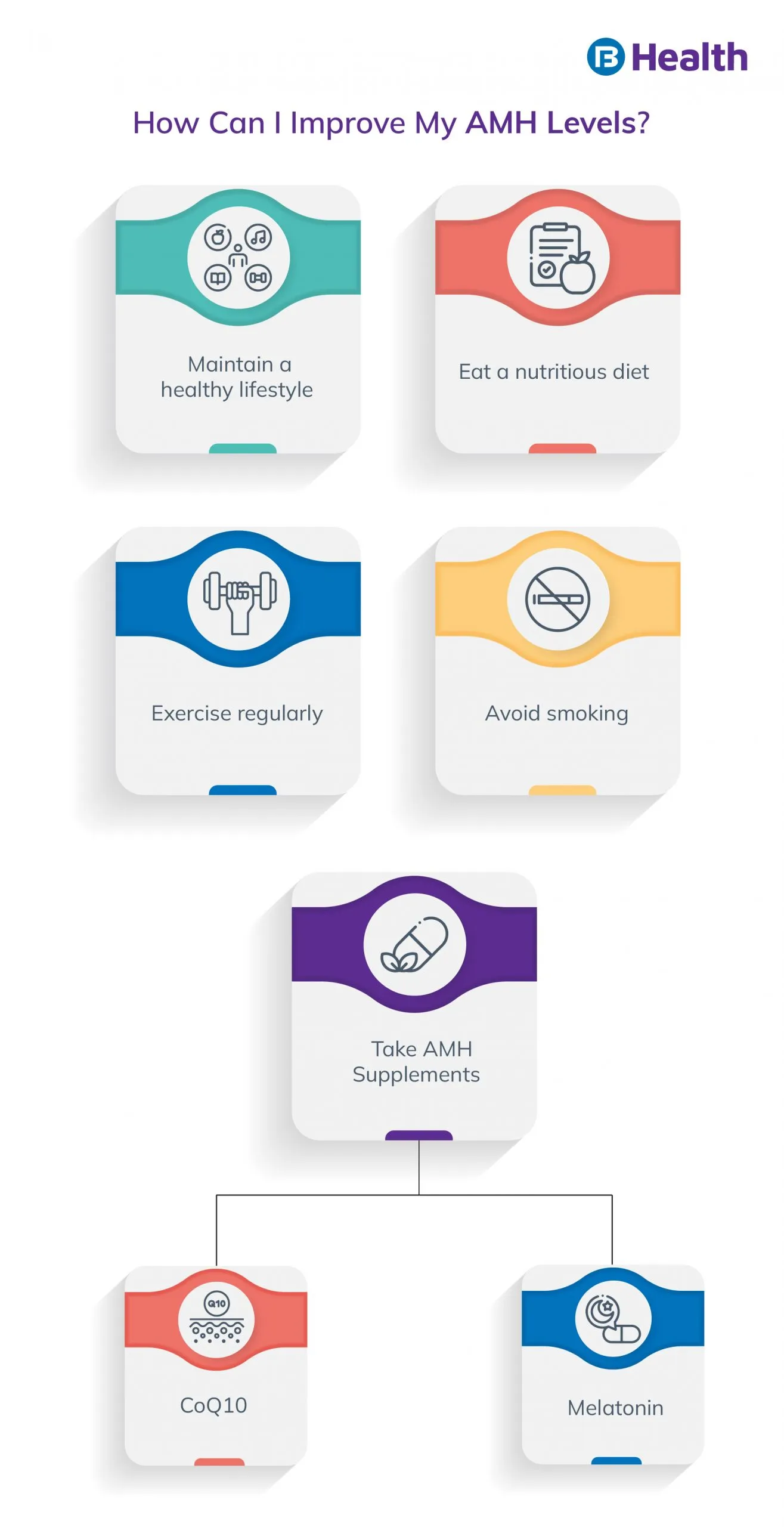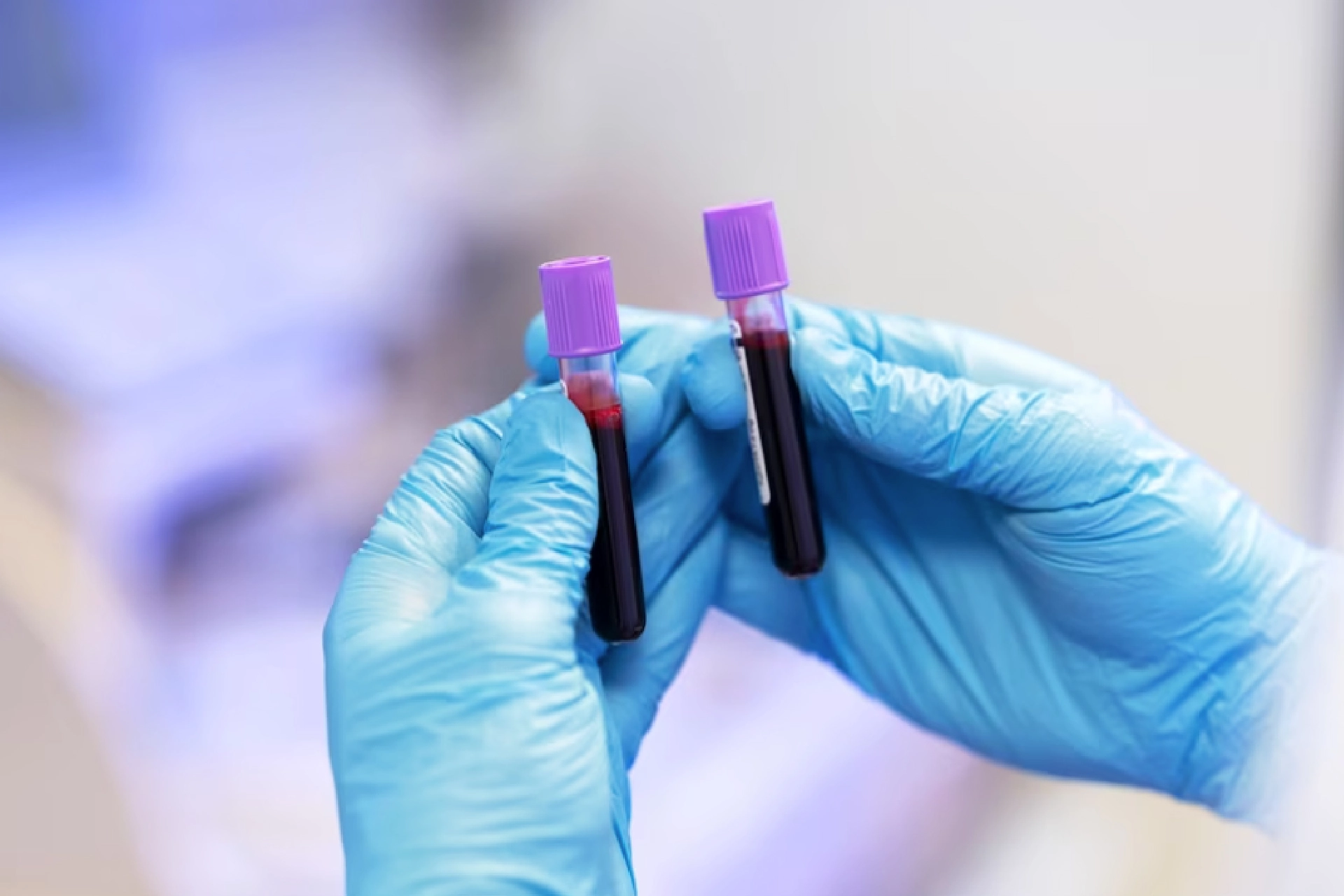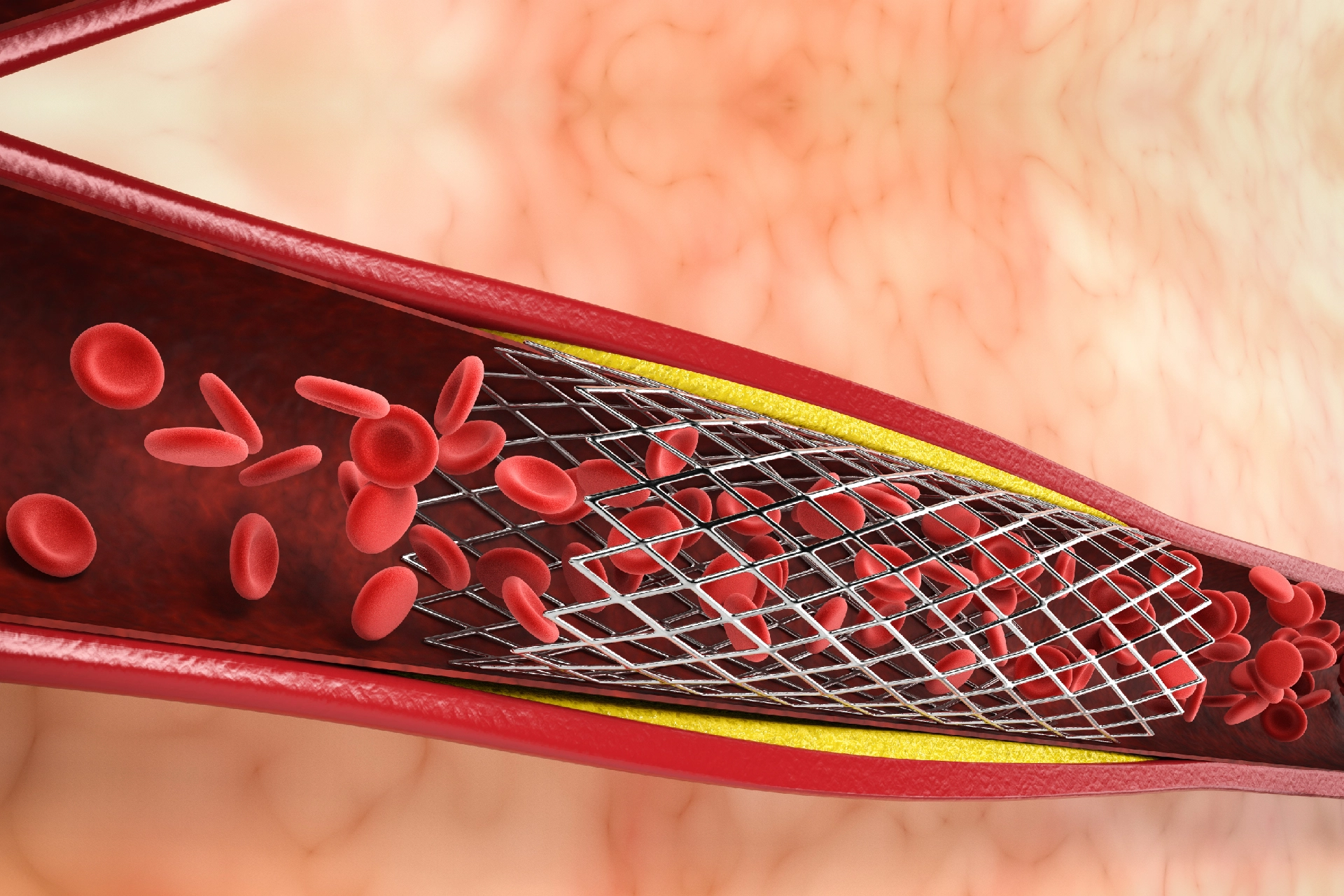Health Tests | 7 min read
Anti Mullerian Hormone Test: Result, Risk Factor and Levels
Medically reviewed by
Table of Content
Synopsis
Anti-Müllerian hormone (AMH) is a protein produced by cells in the ovaries that plays a role in the development of eggs. AMH levels can give important information about a woman’s fertility and her likelihood of developing certain conditions, such as ovarian cancer. This article will provide an overview of AMH and its potential implications for women’s health.
Key Takeaways
- It helps to get information on a woman’s fertility, her likelihood of developing certain conditions, like ovarian cancer
- AMH testing is performed by taking a blood sample from a vein in the arm
- Supplements are available to support AMH levels
While most women have heard of the hormone, few know exactly what it does or what their levels can tell them. Higher levels of AMH may indicate a lower risk of ovarian cancer. Anti mullerian hormone levels can also predict a woman's likelihood of success with in vitro fertilization (IVF). Because the AMH test is a simple blood test, it is becoming increasingly popular as a way to screen for ovarian reserve. This article will explain everything you need to know about AMH levels and what they can tell you about your fertility.
How is AMH Testing Performed?
AMH (anti mullerian hormone) testing is performed by taking a blood sample from a vein in the arm. The sample is then sent to a laboratory for analysis. The results of the test are typically available within a few days. AMH testing is used to evaluate a woman's potential for fertility. It can also help diagnose certain conditions, such as polycystic ovary syndrome (PCOS) and primary ovarian insufficiency (POI). AMH blood test is typically performed along with other fertility tests, such as FSH (follicle stimulating hormone) testing.
The double marker test in pregnancy is a screening test for birth defects and genetic conditions. It measures two specific markers in the blood: alpha-fetoprotein (AFP) and human chorionic gonadotropin (hCG).
The test is usually done between the 15th and 20th weeks of pregnancy, but it can be done earlier. It is typically done as a part of routine prenatal care, but it may also be done if there is a family history of certain conditions or if the mother has certain risk factors.
Additional Read: Hormone Tests for FemalesWhat Are The Implications of High AMH Levels?
High levels of anti mullerian hormone(AMH) are associated with positive and negative implications. On the positive side, high AMH levels have been linked to a lower risk of ovarian cancer. They have also been linked to a higher chance of producing eggs of a higher quality. This can be beneficial for women who are looking to conceive.
On the negative side, high AMH levels have been linked to a higher risk of developing ovarian cysts. They have also been linked to a higher chance of miscarrying. Therefore, it is important to consult with a medical professional before making any decisions about fertility treatment.

What Are The Implications of Low AMH Levels?
Low levels of anti mullerian hormone (AMH) can have a number of implications for both men and women. In women, low AMH levels can indicate a decreased ovarian reserve and may lead to fertility problems. In men, low AMH levels may be a sign of poor semen quality. Additionally, low AMH levels have been linked with an increased risk of certain types of cancer, such as ovarian cancer. While more research is needed to understand the implications of low AMH levels, it is clear that this hormone plays an important role in both men's and women's health. [1]
Additional Read: Karyotype TestHow to Improve AMH Levels?
You can do a few things to combat age-related declining AMH levels. One is to maintain a healthy lifestyle. Eating a nutritious diet and exercising regularly can help keep your AMH levels up. You can also take supplements designed to support AMH levels, such as CoQ10 or melatonin. Additionally, avoiding risk factors for AMH decline, such as smoking, can help keep your levels high. While you cannot completely stop the effects of aging on AMH levels, these steps can help slow the decline and keep your levels healthy.
AMH and Fertility
Fertility is a complex trait influenced by many factors, including age, lifestyle, and genetics. AMH (anti-Müllerian hormone) is one of the genes implicated in fertility. AMH is produced by the ovaries and plays a role in the development of the follicles, which are the structures that house the eggs.
Recent research has shown that women with higher levels of AMH are more likely to conceive and have a successful pregnancy. [2] Anti mullerian hormonelevels can be measured through a simple blood test, and this test is becoming increasingly popular among women who are trying to conceive.
Antinuclear antibodies (ANA) are proteins produced by the body in response to an infection or other stressors. They are found in the blood and can be used to diagnose autoimmune diseases. Both ANA and AMH levels can fluctuate in response to different stressors, so it is important to work with a healthcare provider to interpret the results of these tests.

AMH and Menopause
AMH, or anti-Müllerian hormone, is a hormone produced by the ovaries. AMH levels decline as a woman ages, which is a predictor of Menopause and perimenopause. Women with higher AMH levels tend to have later Menopause, while women with lower AMH levels tend to have earlier Menopause. AMH testing is used to predict Menopause and to diagnose fertility problems. AMH levels can be tested with a blood test or a pelvic ultrasound.
If you plan to have children, you may consider having your AMH levels tested. This test can give you a better idea of when you may experience Menopause and how long you have to have children.
AMH Levels and Lifestyle Choices
A recent study has found a link between levels of AMH (anti-mullerian hormone) and lifestyle choices. AMH is a hormone produced by the ovaries and is a sign of ovarian reserve. The study found that women with high AMH levels were more likely to make healthy lifestyle choices, such as exercising regularly and eating a healthy diet.
The study also found that women with high AMH levels were less likely to smoke and were more likely to have a healthy BMI. This important finding shows that lifestyle choices can impact ovarian reserve. This means that women who make healthy choices now may be able to improve their fertility later on. If you want to improve your fertility, making healthy lifestyle choices is a good start.
Additional Read: Tips to Boost the Female Reproductive System
Are There any Risks Associated with AMH Testing?
A few risks are associated with AMH testing, but they are typically minor and can be easily managed by your healthcare team. The most common risks include bruising, bleeding, and discomfort at the injection site. These risks are usually temporary and will go away within a few days. More severe complications can occur in rare cases, such as infection or damage to the nerves near the injection site. However, as with any medical test, some potential risks and complications could occur. These include:
- inaccurate results (due to factors such as incorrect sample collection or lab test error)
- false-positive results (indicating a lower ovarian reserve than is the case)
- false-negative results (indicating a higher ovarian reserve than is the case)
- emotional stress and anxiety (associated with the worry of getting a low AMH result)
Overall, the risks and complications associated with AMH testing are relatively rare. However, speaking with your doctor about all potential risks is important before undergoing any medical test.
What are the Next Steps if AMH Level is Abnormal?
If you have received abnormal results from your AMH blood test, you can take a few next steps. First, you can seek out a fertility specialist for further testing. This may include a pelvic ultrasound to check for abnormalities in your reproductive organs or a blood test to measure your FSH levels. You may also undergo a laparoscopy, a surgical procedure that allows your doctor to look closely at your reproductive organs.
If you are found to have a low AMH level, there are still options available to you. Your doctor may recommend medications or fertility treatments that can help you conceive. In some cases, IVF may be recommended. However, it is important to discuss all of your options with your doctor before making any decisions.
Anti mullerian hormone (AMH) is a hormone produced by the ovaries. AMH levels can give your doctor important information about your reproductive health. For example, high AMH levels may indicate that you have a higher risk of ovarian cancer. If you're concerned about your AMH levels, talk to your doctor. You can also head to Bajaj Finserv Health for a complete health solution.
References
- https://pubmed.ncbi.nlm.nih.gov/34830389/
- https://www.sciencedaily.com/releases/2013/02/130212075111.htm#:~:text=The%20study%20found%20women%20with,production%20were%20taken%20into%20account.
Disclaimer
Please note that this article is solely meant for informational purposes and Bajaj Finserv Health Limited (“BFHL”) does not shoulder any responsibility of the views/advice/information expressed/given by the writer/reviewer/originator. This article should not be considered as a substitute for any medical advice, diagnosis or treatment. Always consult with your trusted physician/qualified healthcare professional to evaluate your medical condition. The above article has been reviewed by a qualified doctor and BFHL is not responsible for any damages for any information or services provided by any third party.





